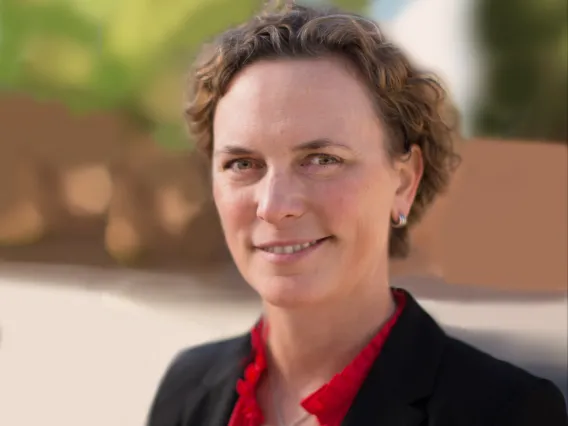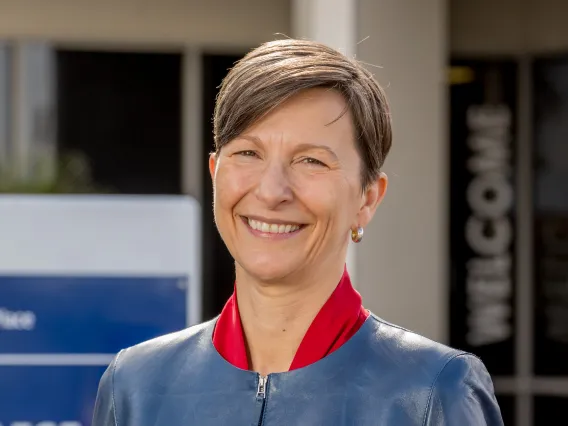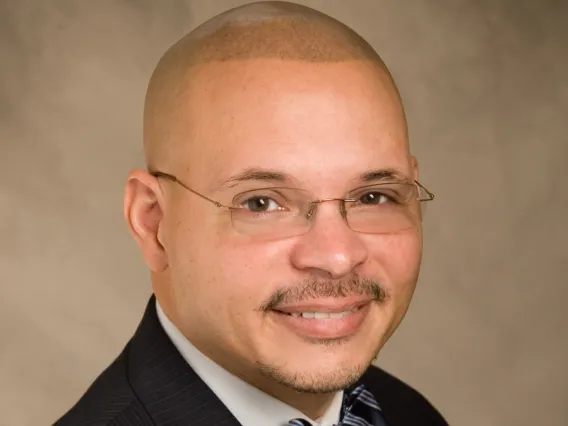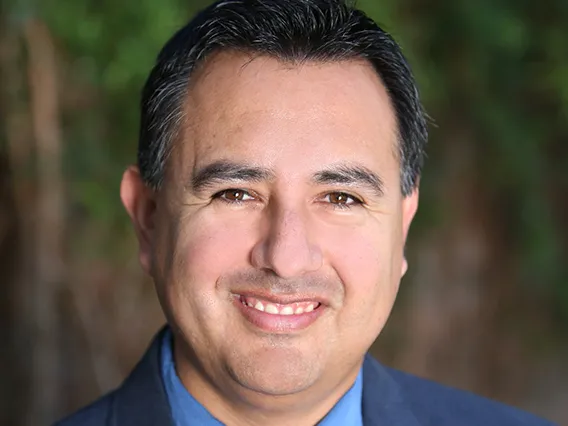
Flexible Work Initiative
University Initiatives & Policy | Human Resources | Staff Council
What is Flexible Work?
Flexible work refers to arrangements that alter an employee’s:
-
Work location outside of a University building, office, or workplace (Flexible Space).
-
Schedule outside of a traditional Monday-Friday, 8 a.m.-5 p.m. (Flexible Schedule).
A flexible work arrangement can include either or both types of flexibility. Here are some examples:
Hybrid Work Week
An employee completes some, but not all, of their scheduled hours from home or another off-site location.
Flexible Space
Summer Remote Periods
Refers to 1-4 weeks during the summer when an employee completes all work from home or another off-site location.
Flexible Space
Fully Remote Work
An employee completes all of their scheduled hours from home or another off-site location.
Flexible Space
Flexible Schedule
An employee is allowed variations in start and end times, but does not change the total number of hours worked in a work week.
Flexible Schedule
Compressed Work Week
An employee completes their scheduled hours each week in less than five full work days (e.g. 4/10s, 9/80s, or four 9-hour days with one half day).
Flexible Schedule
Core Business Hours
Refers to set times (e.g. 10am-3pm) when all employees within an area, unit, or team must be working. Time outside of core business hours are flexible.
Flexible Schedule
Project Goals
The Flexible Work Initiative has three primary goals:
- Gain a deeper understanding of current University workforce needs and experiences related to flexible work.
- Learn from the offices/units who are already leading the way in this area.
- Develop guidance and resources that assist supervisors and employees to successfully implement flexible work arrangements that are:
- Equitable
- Responsive to the unique needs of units across campus
- Aligned with the University's employee recruitment and retention goals.
The project team is working to develop guidance and resources to support supervisors and staff. Ongoing updates will be made to the Human Resources webpage on Flexible Work Guidelines and Resources.
Project Updates
Milestones
April 2022 - Project Launched
University Initiatives & Policy, Human Resources, and Staff Council teamed up to launch the Flexible Work Initiative.
May 2022 - Campus-wide Flexible Work Surveys Administered
The Staff Council administered the staff survey, while the Flexible Work Initiative administered a complementary supervisor survey.
June 2022 – Summer Pilot Program Launched
The Initiative launched a summer pilot with 17 units across campus to learn more about the successes, benefits, and challenges of various flexible work arrangements.
July 2022 – Presentations to Leadership
The Initiative presented to the Deans’ and Provost's Councils, Executive Leadership, and Supervisors about the survey findings and project updates.
August 2022 – Campus Email
President Robbins emailed campus announcing the ongoing efforts of the Flexible Work Initiative and sharing support for flexible work arrangements.
Timeline
Spring 2022 Complete
Administer stakeholder surveys: Staff Survey and Supervisor Survey
Summer 2022 Complete
Conduct a deeper analysis of the survey data to broaden our understanding of current workforce needs and experiences related to flexible work, including College and Division Reports.
Run a pilot program of flexible work.
Early Fall 2022 Complete
Engage in focus groups to assess pilot program outcomes.
Fall 2022 Complete
Develop guidance and resources for campus based on survey and focus group results.

Michael Dake | Senior Vice President, Health Sciences
"The educators, researchers, health care providers and support staff working at the University of Arizona Health Sciences are committed to improving health and human potential by educating the next generation of health care professionals and building healthier communities. Flexible working conditions are one way we can help improve the health of the university community. Research has shown that employees with flexible work arrangements may experience better physical health and fewer somatic symptoms, which could include pain, fatigue or headaches. As we prepare students to build and lead the future of health care, we will continue to examine the potential of various flexible work plans to promote optimal health and well-being for employees."

Sangita Pawar | Vice President, Operations, Research Innovation & Impact
"The Pandemic has taught us that the functions of the University can continue irrespective of the location of its support staff. Most of the RII support staff is remote and is functioning at a very high level. The importance of mental health of our staff cannot be stressed enough and the flexibility to work remotely has shown an improvement in retention, morale and performance. We will continue to assess the needs of our staff and pivot accordingly to provide remote and hybrid environments as situations change."

Jon Dudas | Senior Vice President and Secretary of the University
"We owe our students and community excellence in education and owe our faculty and staff excellence in their work environment. Appropriate and tailored flexible work arrangements allow us to excel because colleagues are more satisfied in their lives and work. Among other advantages, flexible work arrangements accommodate employees' childcare needs and maximize employee productivity and wellbeing. Working with employees to find successful, individualized arrangements demonstrates our commitment to UA values of Compassion, Adaptation, and Inclusion."
Survey Findings
The Staff Council developed and administered a staff survey to better understand the current flexible work arrangements staff have, the greatest benefits of flexible work, and the greatest challenges. At the same time, the Flexible Work Initiative administered a complementary supervisor survey.
Response rate
- Supervisors: 40%
- Staff: 21%
Key Findings
82% of staff respondents reported having at least one type of flexible work arrangement in place.
| Type of Flexible Work | % Staff Who Currently Have Arrangement | % Staff Who Stated Arrangement Would be Somewhat or Very Beneficial |
|---|---|---|
| Flexible Schedule | 42% | 88% |
| Hybrid Work Week | 44% | 80% |
| Core Business Hours | 13% | 72% |
| Summer Remote Periods | 3% | 72% |
| Compressed Work Week | 4% | 71% |
| Fully Remote Work | 26% | 69% |
INCREASED PRODUCTIVITY
73% of supervisor respondents who offer flexible schedules and 72% of supervisor respondents who offer hybrid work weeks reported increased productivity among their staff.
INCREASED MORALE/JOB SATISFACTION
92% of staff respondents who have experienced flexible work agreed or strongly agreed that flexible work increases their morale/job satisfaction.
Top ranked benefit according to supervisors
INCREASED EMPLOYEE WELLBEING
94% of staff respondents who have experienced flexible work agreed or strongly agreed that flexible work benefits their wellbeing.
Top ranked benefit according to supervisors
SUPERVISOR OFFERINGS
92% of supervisors respondents stated they currently offer some type of flexible work.
SUPERVISOR CHALLENGES
Nearly half of supervisors who currently offer hybrid work, fully remote work, or flexible schedules report experiencing no challenges.
The most frequently reported challenge was decreased employee engagement.
RETENTION & RECRUITMENT
20% of staff respondents say they are currently seeking employment outside of the University that offers more flexibility.
Data based on results of the April 2022 supervisors and staff surveys
For more information, read the full report:

Darcy Van Patten | Chief Technology Officer
“The Division of the CIO determined work modality carefully based on ensuring the highest level of productivity and value to the university community. Teams work fully on-site, hybrid, and remote first, and use a variety of collaboration tools to orchestrate their efforts and stay connected personally and professionally. We have seen tremendous levels of productivity and employees report improvements in their ability to balance their work/life responsibilities. The IT industry overall has moved more toward hybrid and remote work modalities, so we also see flexible work models being critical to retaining top talent.”

Julie Funk | Dean, College of Veterinary Medicine
“The College of Veterinary Medicine had a relatively easy transition to a flexible workplace policy. We are a new college, and due to necessity, we instituted a flexible format because we did not have office space. We learned quickly that we were able to work effectively and efficiently, and were able to recruit great talent, by providing flexible work arrangements.”

Craig Wilson | Vice Provost, Online, Distance & Continuing Education
“Over the last two years, it became clear our Online, Distance and Continuing Education (ODCE) division could function at the highest levels in a hybrid setting. During the last two years (height of the pandemic), we were able to develop our Mission, Vision, and Values; create a 5-year strategic Roadmap incorporating inputs internal and external to ODCE, and grew our online student enrollment by over 40%. Further, we reached #7 in USNEWS ranking of quality online programs in 2021 and 2022. Properly managed, high productivity can be accomplished in hybrid working arrangements.”

David Hahn | Dean, College of Engineering
“We are in a very dynamic labor market with regard to hybrid and flexible work schedules. As supervisors, it’s important to embrace this new normal to boost the morale, productivity, recruitment and retention of our colleagues. I believe that UA needs to lead or we will fall behind on the human talent front.”

Francisco Pedroza | Assistant Dean, Business-Finance, Social & Behavioral Sciences
“Professional staff need trust and flexibility to achieve their professional and personal goals. The traditional work environment pits these goals against each other. Therefore, it’s time we adapt our environments so that life-work harmony can be achieved. As managers we need to shift to new realities, technologies, methodologies, and strategies to maximize the potential of others. Being flexible is a key component.”

Michelle McKelvey | Director, Thrive Center
“Flexible work schedules meet the needs of both our professional staff and the students we serve by making us more than an 8:00am-5:00pm, Monday through Friday office. While meeting the needs of staff to create a schedule that works for balancing their life outside of work, it simultaneously expands the hours staff are available to meet with students.”
Frequently Asked Questions
No. If you have non-exempt (hourly) employees, the 9/80 schedule will not be an option for them due to payroll regulations. Please consult with your Sr. HR Partner for guidance and to discuss alternative flexible schedule options.
Maybe. Regulations may exist that complicate compressed work weeks for out-of-state employees who are non-exempt (hourly). Please consult with your Sr. HR Partner for guidance.
Out-of-state work is not within the scope of the flexible work arrangements. To account for the complexities and costs of complying with state and local laws and tax requirements, and to ensure we remain committed to our Arizona community and land-grant mission, requests for out-of-state work arrangements require leadership review and approval and must meet specific institutional guidelines.
Please view the Out-of-State Domestic Work Arrangement Guidelines for Supervisors page for more information.

